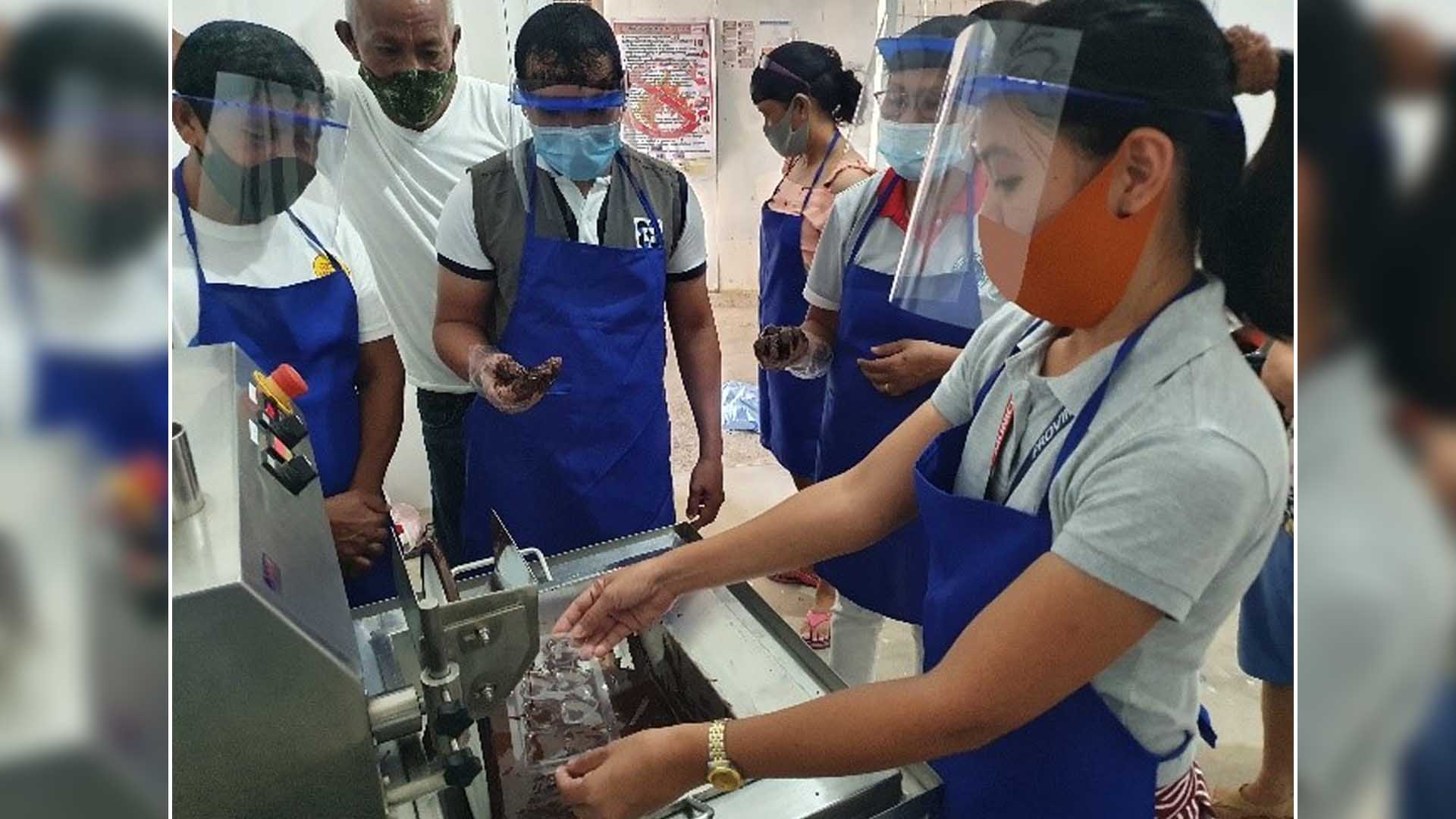With the newly installed solar-powered water pumping system with filtration and treatment facility, the Department of Science and Technology-MIMAROPA (DOST-MIMAROPA) intends to address water security and safety on the island of Concepcion in Romblon.
Concepcion, considered a Geographically Isolated and Disadvantaged Area (GIDA), is the farthest island municipality in the province with nine barangays which has been suffering from limited access to safe and adequate water. The residents only rely on rainwater collected using basins and pails and deep wells powered by an electric pump as their water source, however, the operation is limited due to high electricity cost.

The solar energy system-powered water pump was provided to Brgy. Masadya, the poorest barangay in Concepcion, through the Community Empowerment through Science and Technology Program of DOST-MIMAROPA. Compared to other barangays, the residents in Masadya are only given two hours in the morning and another two in the afternoon to get the water their families’ lives depend on. Baranggay officials were forced to limit the water collection hours to avoid incurring high electricity costs. Each family is required to pay PhP 50.00 per 10 cubic meters of water per month and an additional PhP 5.00 per extra 10 cubic meters for the use of the deep well to sustain its operations. On average, Brgy. Masadya is paying PhP 7,000 solely for electricity, which they admit can be utilized for rather more valuable expenses for the community.

The water quality that is sourced from the water pump is also salty and metallic in taste which poses many health risks to the residents. When a household is not able to save enough water within the 4 hours allotment, they have to endure traveling to the next barangay with a water supply— Brgy. Poblacion which is about 7 kilometers away. It is the barangay’s dream to reduce this drudgery to improve the health of its residents and give more opportunity of spending more time on income-generating and other productive activities.
Now, with the installation of the solar-powered water system with filtration and treatment facility, continued access to clean and safe drinking water at any time of the day is guaranteed. A total of 74 households or about 400 residents not only from the community but even from the adjacent barangay can now benefit from the improved water source.
Moreover, the system’s water filtration and treatment facility greatly improve the quality of water. With the technology, the water’s metallic taste has been removed and its brininess has been reduced by 90%. Since it is solar-powered, it also helps the community manage their water needs in an environment-friendly way. The barangay local government unit (BLGU) maintains the technology and ensures that families can collect as much water as they need that is also assured clean and safe.
“Malaki po tlga ang pagkaka iba ng lasa ng tubig namin. Hindi na sya maalat, kaya panatag na kami na hindi kami magkakasakit”, said Erlindo Fanoga Jr., Brgy. Masadya’s Brgy. Captain.
Other interventions to guarantee the sustainability and reliability of their water supply include training on the operation and maintenance of the solar-powered water system with filtration and treatment facility, and provision of Ceramic Water Filters (CWF) to 50 households from other barangays.
DOST-MIMAROPA recognizes the importance of water security to ensure sustainable rural development and resilience, especially in this time of battling against the COVID-19 pandemic where sanitation and hygiene serve as the primary defenses. Through the CEST Program, DOST- MIMAROPA harnesses technology as a springboard for further development in remote areas in the region.
CEST works to raise the living standards of disadvantaged and vulnerable communities by addressing pressing issues related but not limited to livelihood, health and nutrition, education, disaster risk reduction, and climate change adaptation, and environmental protection and conservation.
Improving Children’s Health and Nutrition with Complementary Baby Food

In addition to the solar-powered water pumping system with filtration and treatment facility, Brgy. Masadya also received various interventions to improve their status of health and nutrition through the CEST program. Barangay health workers and barangay nutrition scholars were provided with various training such as basic nutrition and food safety. The agency also showcased DOST- FNRI’s Complementary Baby Food (CBF) through the conduct of a 120-day feeding program to all malnourished children in the barangay aged 6-36 months. Results showed that the children elevated their nutritional status. Two (2) children were removed from its severely underweight status while the seven (7) underweight children improved their weight and were classified as normal after the intervention.
“Chocobuco” Making

Economic opportunities in the area are limited, with only coconut trees as the most abundant resource and main source of raw materials. To open more livelihood opportunities, a group of women was trained on the chocolate molding. This inspired them to venture into the chocolate- making business as a source of additional income. In 2019, the women’s organization sought assistance from the DOST-MIMAROPA and was provided with coconut processing equipment that can be used to make a special chocolate called “chocobuco”, a chocolate treat infused with coconut filling.
Opportunities in Recycling

DOST-MIMAROPA also performed a Waste Analysis and Characterization Study (WACS) and provided the island with a plastic pulverizer and a junk compactor to improve its waste management and upgrade their Materials Recovery Facility (MRF). The technology, which started out as an initiative for solid waste management, later turned out to be an income-generating opportunity for the community and the local government unit. Plastic wastes generated by households are being sold to LGUs to be pulverized and become a bulk material for hollow block making. Pulverized plastics are mixed with cement and gravel and then molded into blocks. These hollow blocks are being used in the construction projects of the LGU. Other recyclable wastes on the other hand are being compacted using the junk compactor and are sold to the nearest waste processing facility in Pinamalayan, Mindoro.





















